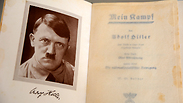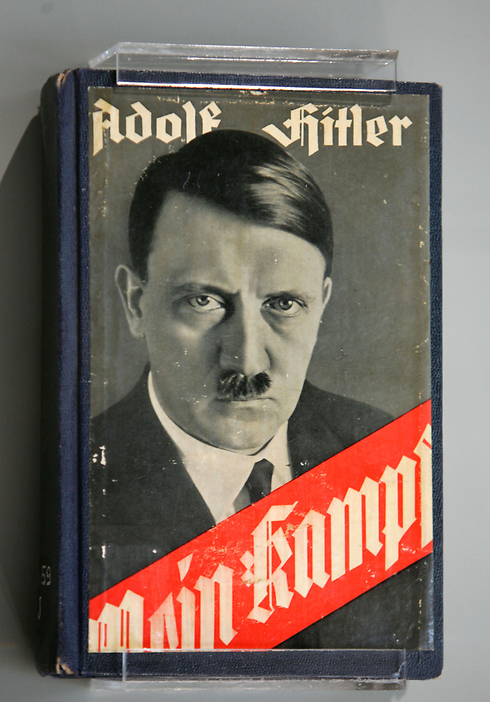
A divisive decision to publish an annotated version of Adolf Hitler's notorious anti-Semitic screed "Mein Kampf" next month for the first time since World War II has received mixed reactions from Jewish communities, with prominent European Jews airing their views in various publications.
The book's copyright protection is about to expire, and the new text was designed to be used academically, with in-depth annotations.
Richard Verber, vice-president of the Board of Deputies of British Jews , cautiously supported the reissue, the Guardian reported on Saturday, quoting Verber as telling the Observer that “we would, of course, be very wary of any attempt to glorify Hitler or to belittle the Holocaust in any way. But this is not that. I do understand how some Jewish groups could be upset and nervous, but it seems it is being done from a historical point of view and to put it in context.
“The key is that the notes to the text really do refute Hitler’s ideas with factual information. If that were not the case, the board of deputies would be worried," said Verber, according to the Guardian. "But the fact remains Hitler is one of the most famous, or infamous, leaders of the 20th century and anything that might put a dampener on that, by showing his views in a historical light, might actually be helpful.”
The Guardian noted that some Jews in Germany have expressed disapproval for the project. One Jewish leader asked: "Can you annotate the devil?" Another called it a "Pandora's box".
But in the Daily Telegraph, Stephen Pollard, editor of the Jewish Chronicle, came down on the pro-publication side. "My principles tell me that republishing it is fine," wrote Pollard in the Telegraph. "At the very least, Mein Kampf is – obviously – an important historical work … Ideas, however awful, cannot be locked away. They have to be defeated.”
Influential American Rabbi Shmuley Boteach also spoke in favor of the critical edition in a column written for the Observer. "By completely censoring Mein Kampf in Germany, the masses are denied an opportunity to be educated as to why the ideas therein are so evil and should be avoided at all costs," argued Boteach, pointing out that the non-annotated text of the book is readily available online.
"When the German people read a critical edition of Mein Kampf breaking down all the lies and flaws in Hitler’s teachings, many will actually be saved from gravitating toward neo-Nazi movements," argued the rabbi.

















